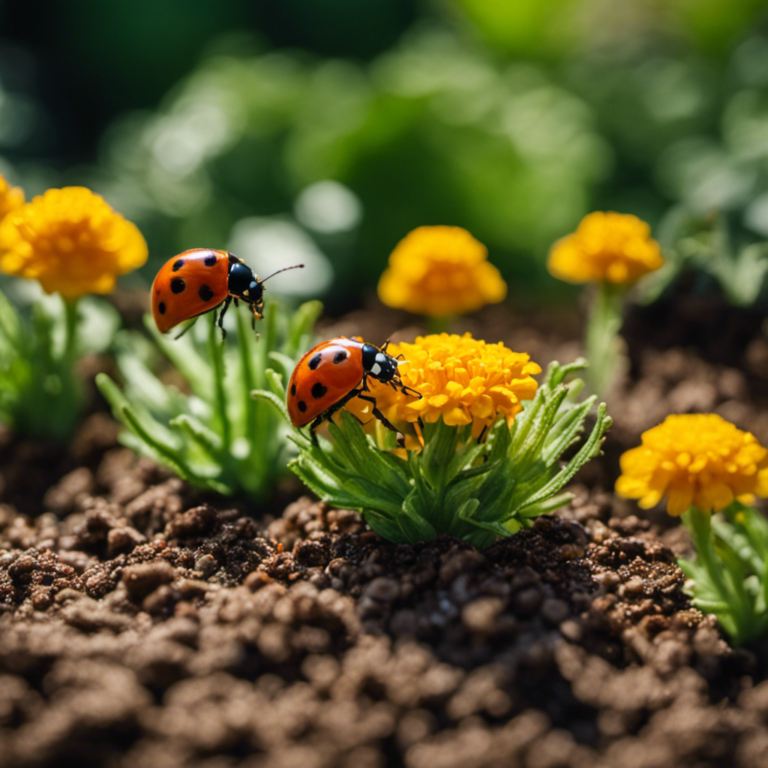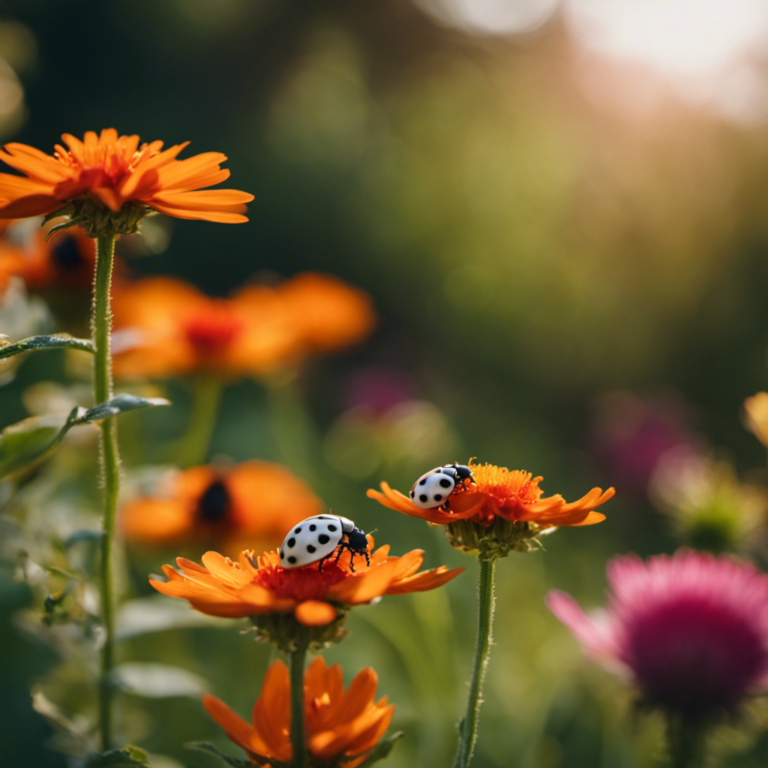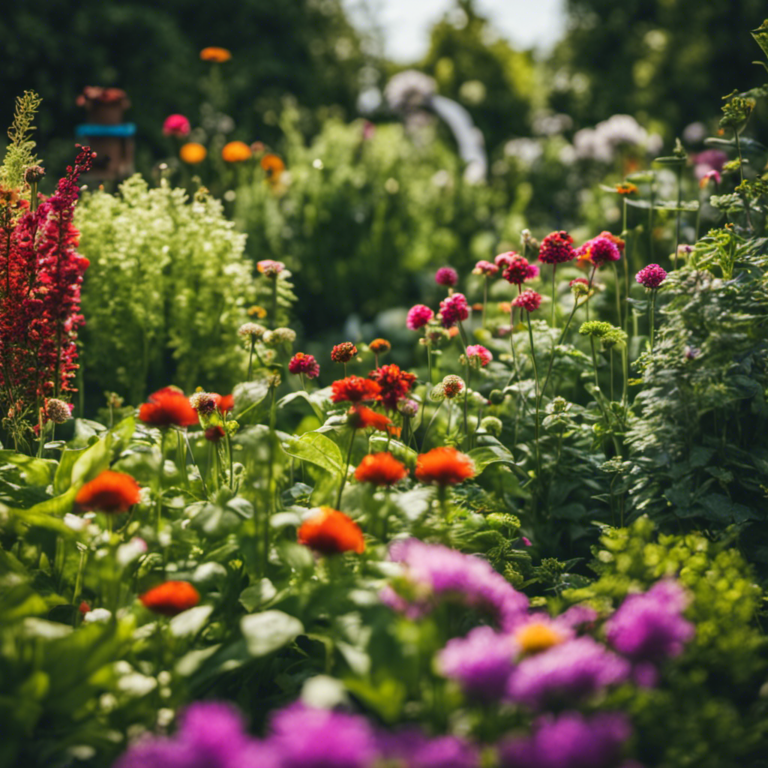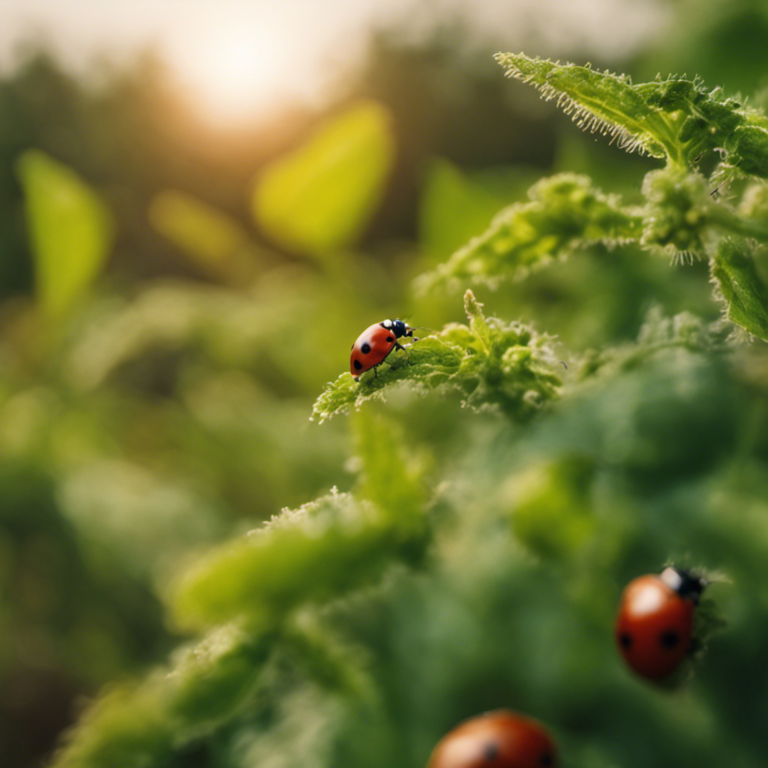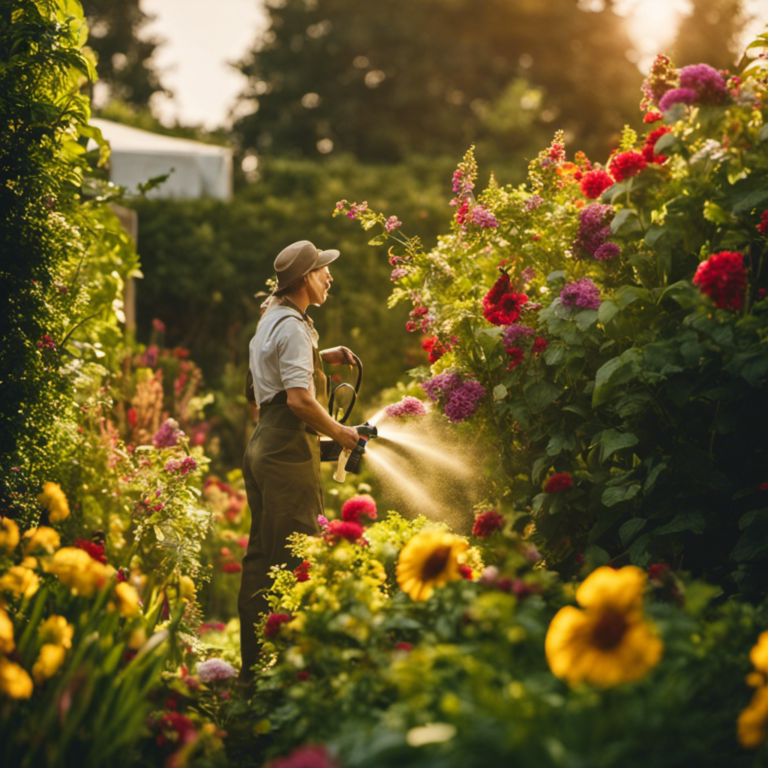Are pests causing problems in your garden? Wondering how to naturally eliminate them?
In this article, we will reveal organic solutions that can help you effectively get rid of garden pests without harming the environment.
You don’t need to look any further! From natural repellents to beneficial insects, homemade sprays to companion planting, and physical barriers to traps, we have practical and effective tips that will assist you in saying goodbye to pests and welcoming a thriving garden.
Let’s begin exploring these solutions together!
Key Takeaways
Why choose harmful chemicals when you have effective natural methods to eliminate garden pests? There is a wide range of organic solutions available, including natural repellents, beneficial insects, homemade sprays, companion planting, and physical barriers. By adopting these eco-friendly methods, you can maintain a pest-free garden without harming the environment. It’s time to create a balanced space where both plants and insects can thrive together.
Natural Repellents for Garden Pests
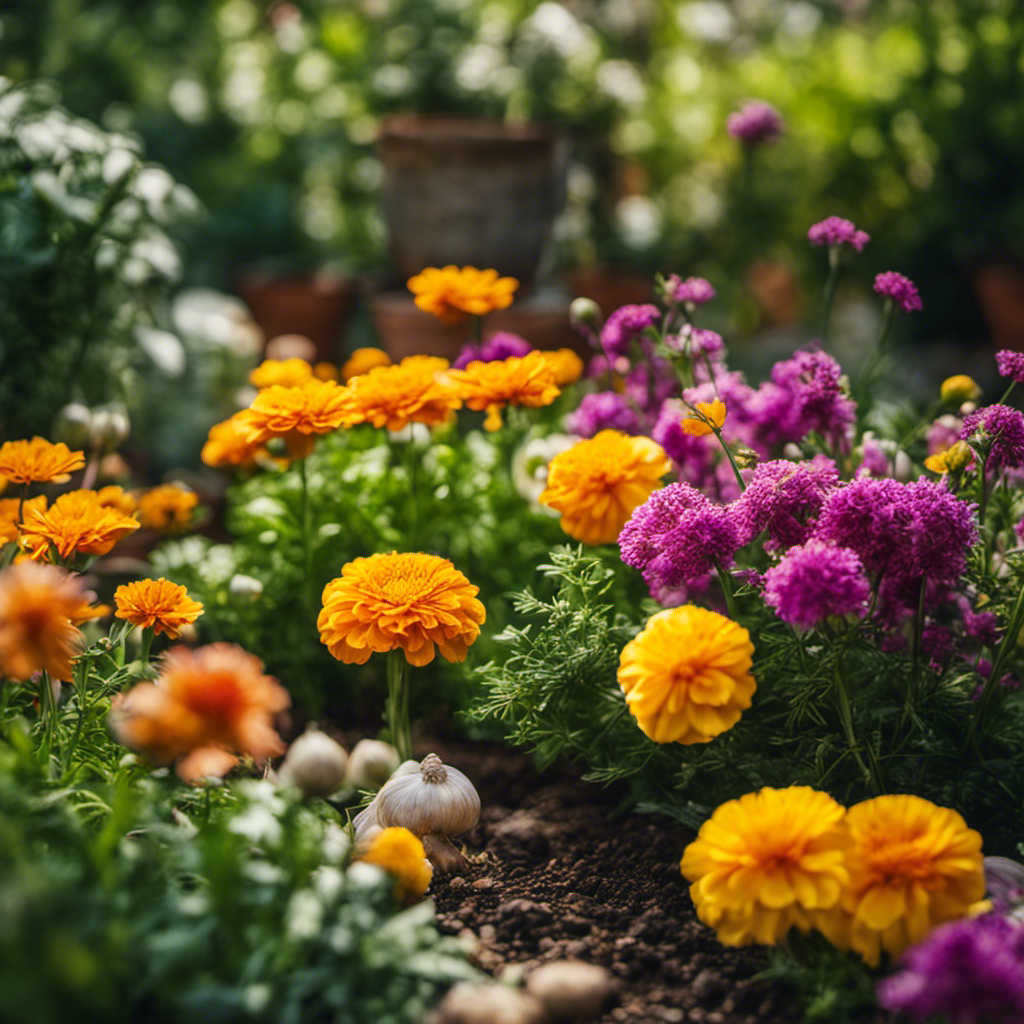
Repelling garden pests naturally is possible by using specific plants and essential oils. Instead of relying on harmful chemicals, organic pest control offers an effective way to keep your garden free from unwanted visitors.
Natural pest deterrents provide a safe and eco-friendly alternative to conventional methods. One plant that’s known for repelling pests is marigold. Its strong scent acts as a deterrent for aphids, nematodes, and other insects.
Garlic is another natural repellent that works against a wide range of pests, including beetles, aphids, and caterpillars. Essential oils like peppermint, lavender, and eucalyptus can also be used to repel pests.
These natural remedies not only protect your plants but also promote a healthier ecosystem in your garden. By using organic pest control and natural deterrents, you can maintain a thriving garden while minimizing harm to the environment.
Beneficial Insects for Pest Control
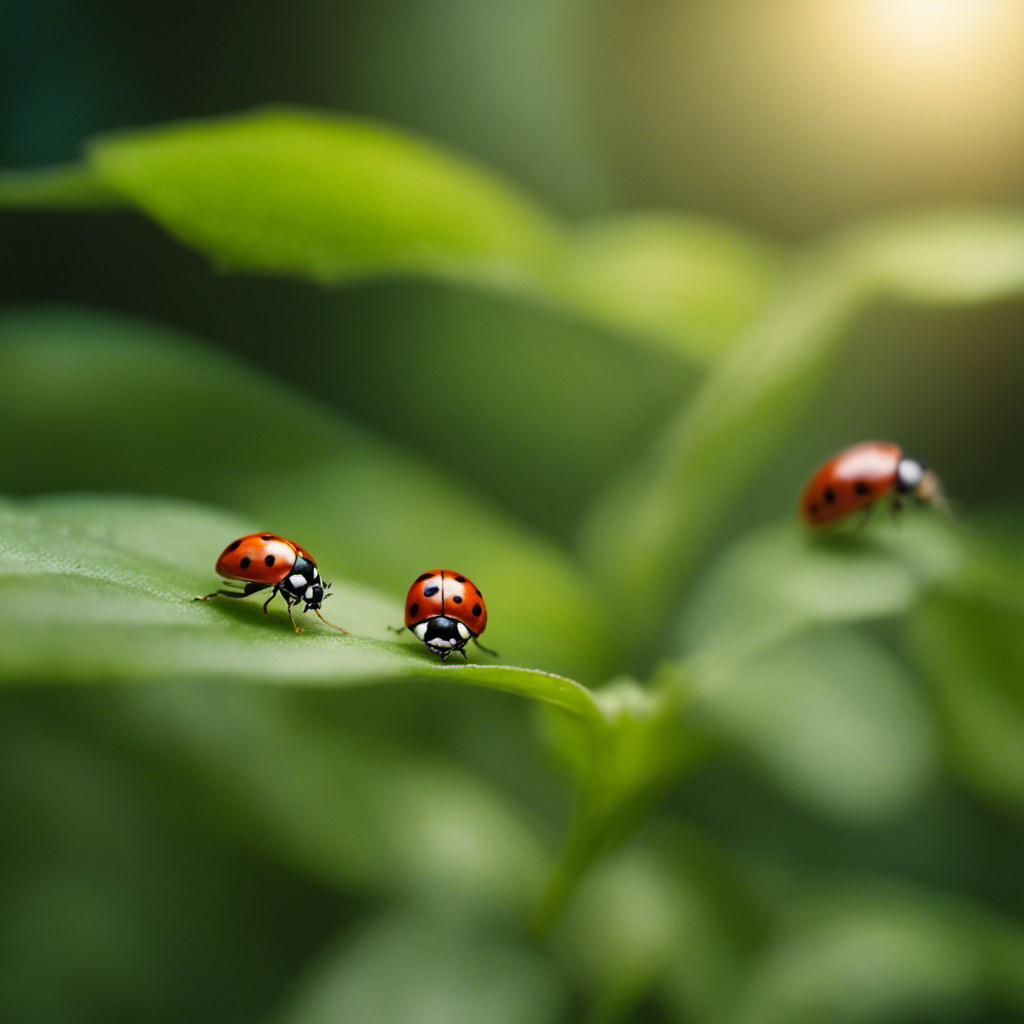
To effectively control garden pests in a natural way, incorporating beneficial insects can be highly beneficial. These insects play a crucial role in the fight against garden pests, helping to maintain the health and vitality of plants without the use of harmful chemicals.
One such beneficial insect is the beneficial nematode. These small organisms act as natural predators to pests like grubs, caterpillars, and beetles. They enter the bodies of these pests and release bacteria that effectively kill them.
Another effective method of biological control is the use of other beneficial insects, such as ladybugs, lacewings, and parasitic wasps. These insects feed on pests like aphids, mites, and whiteflies, helping to regulate their populations.
Homemade Organic Pest Sprays
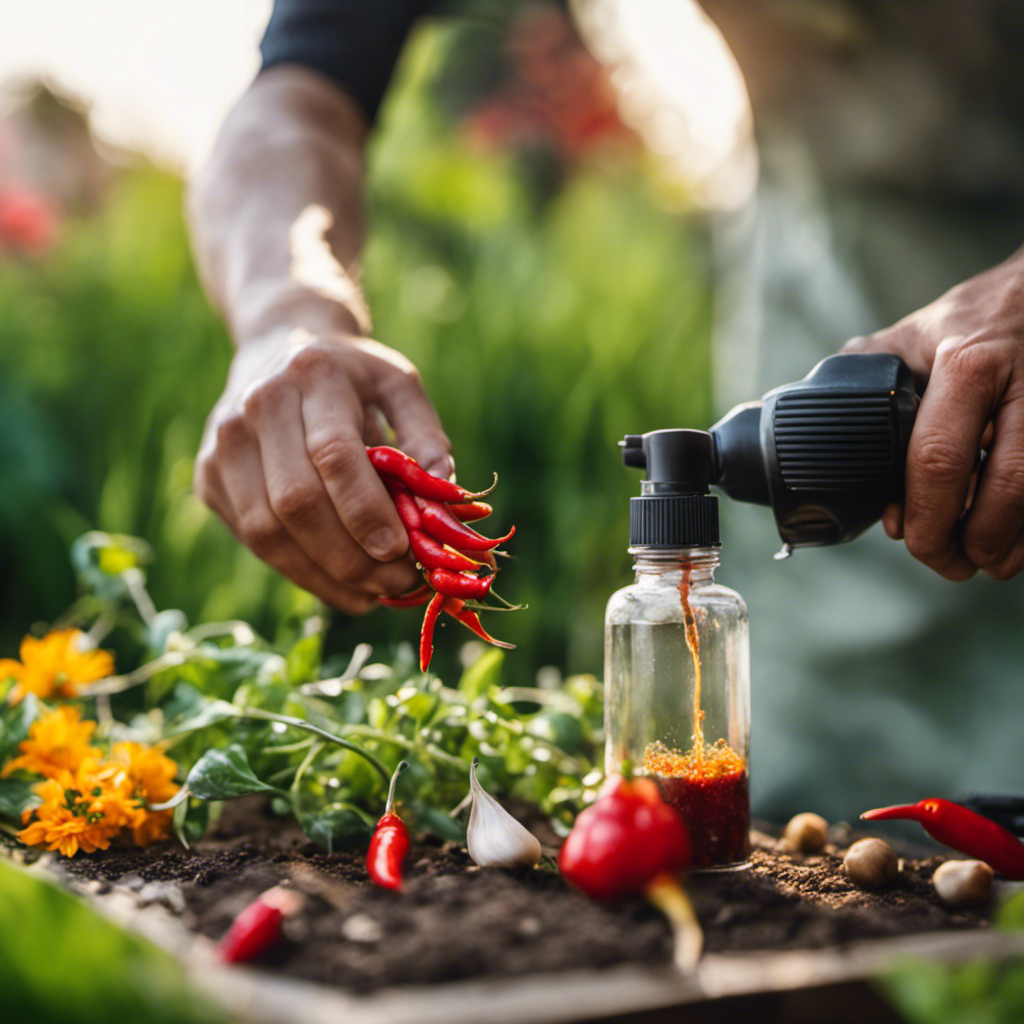
Using homemade organic pest sprays is a great way to effectively control garden pests, in addition to using beneficial insects. Many gardeners are now opting for natural pest control methods to maintain a healthy and thriving garden, without resorting to harmful chemicals. By creating your own organic pest sprays, you can ensure a safe and environmentally-friendly solution to keep unwanted pests at bay.
There are numerous organic pest deterrents that you can easily make at home using everyday ingredients. For example, a mixture of water, dish soap, and oil can be highly effective in repelling insects like aphids and mites. Another option is a garlic and pepper spray, which can help deter beetles and caterpillars.
Companion Planting for Pest Prevention
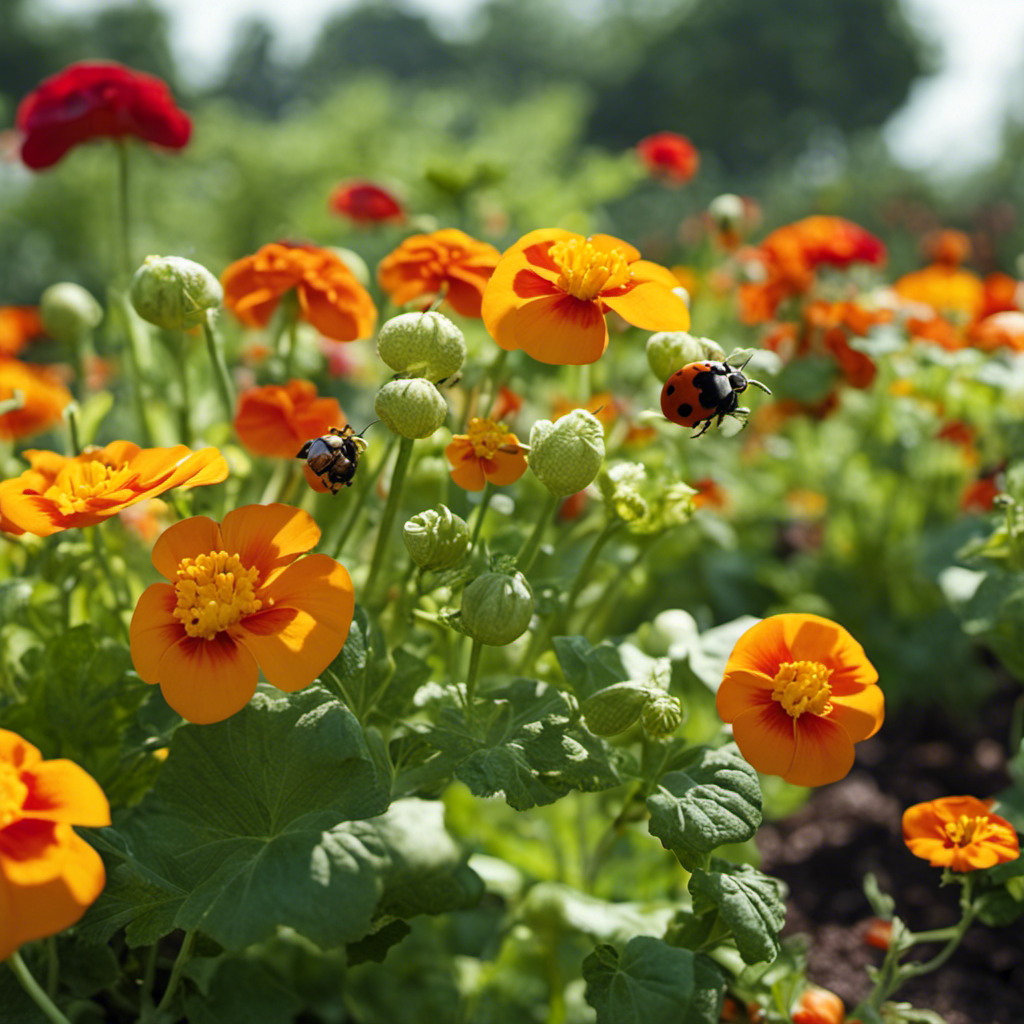
Maximize your garden’s natural defenses against pests by using companion planting techniques. Companion planting involves planting different crops together to promote their growth and protect them from pests. By carefully selecting companion plants, you can create a diverse and balanced ecosystem that naturally repels pests.
One effective method for pest prevention is crop rotation. By rotating your crops each season, you disrupt the life cycles of pests, making it more difficult for them to establish and spread. This technique also helps prevent the buildup of pest populations in the soil, reducing the need for chemical interventions.
Another natural way to control pests is through soil amendments. Certain plants, like marigolds and garlic, have natural pest-repellent properties. By incorporating these plants into your garden, you can deter pests and safeguard your crops. Additionally, adding organic matter, such as compost, to your soil improves its fertility and resilience, making it less susceptible to pest infestations.
By implementing these companion planting techniques, you can create a healthy and thriving garden that naturally keeps pests at bay without relying on harmful chemicals.
| Crop Rotation | Soil Amendments |
|---|---|
| Disrupts pest life cycles | Natural pest-repellent properties |
| Prevents buildup of pest populations | Improves soil fertility and resilience |
Physical Barriers and Traps for Pest Management
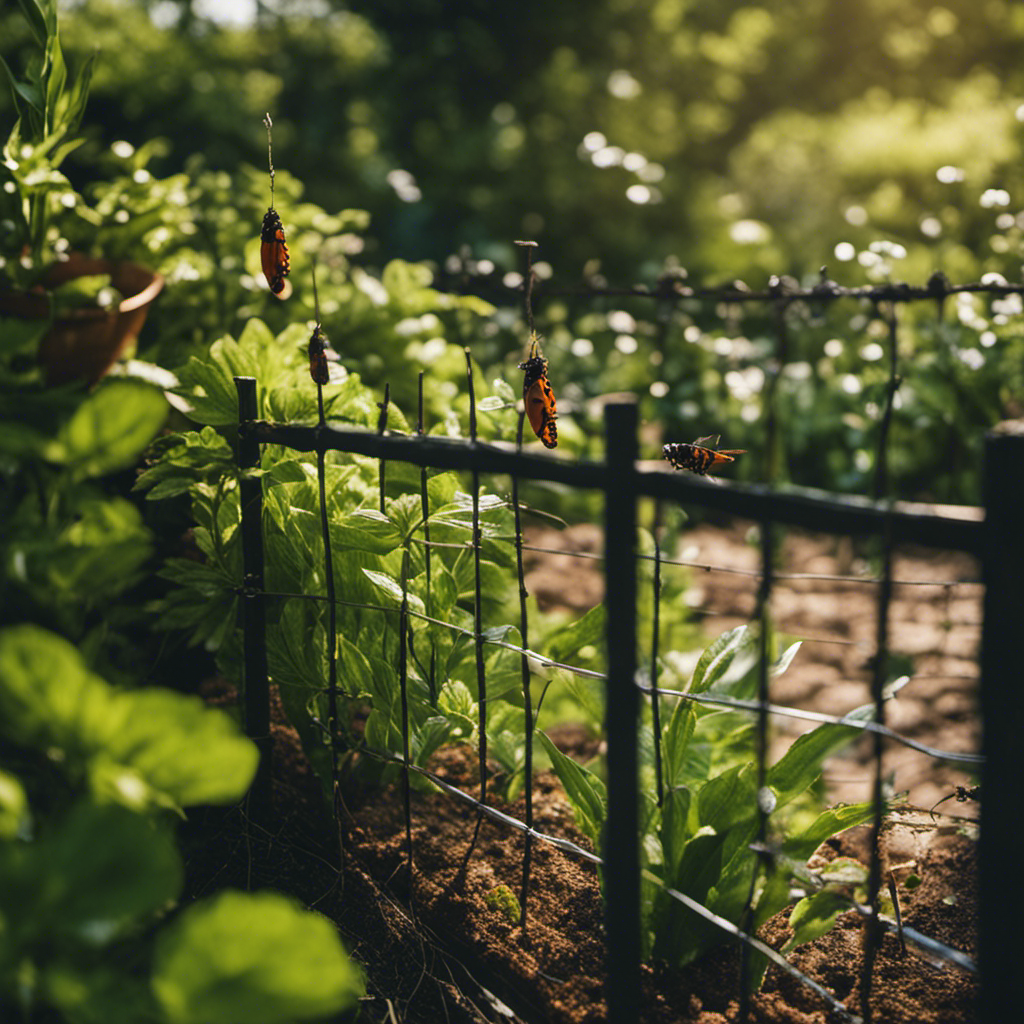
Protecting your garden from pests can be accomplished through the use of physical barriers and traps. One effective strategy is to select plant varieties that are naturally resistant to pests. These plants have built-in mechanisms that make them less appealing to pests, reducing the need for chemical interventions.
Another approach is to employ integrated pest management techniques, which involve using physical barriers such as fences or netting to keep pests out of your garden. For instance, you can install a mesh fence around your vegetable patch to prevent rabbits or deer from damaging your crops.
Traps can also be employed to capture and remove pests from your garden. Sticky traps, for example, can be placed near plants to attract and catch flying insects.
Conclusion
Why rely on harmful chemicals when you can effectively eliminate garden pests using natural methods?
There are plenty of organic solutions available, such as natural repellents, beneficial insects, homemade sprays, companion planting, and physical barriers.
By embracing these eco-friendly methods, you can maintain a pest-free garden without causing harm to the environment.
It’s time to create a harmonious space where both plants and insects can thrive together.

